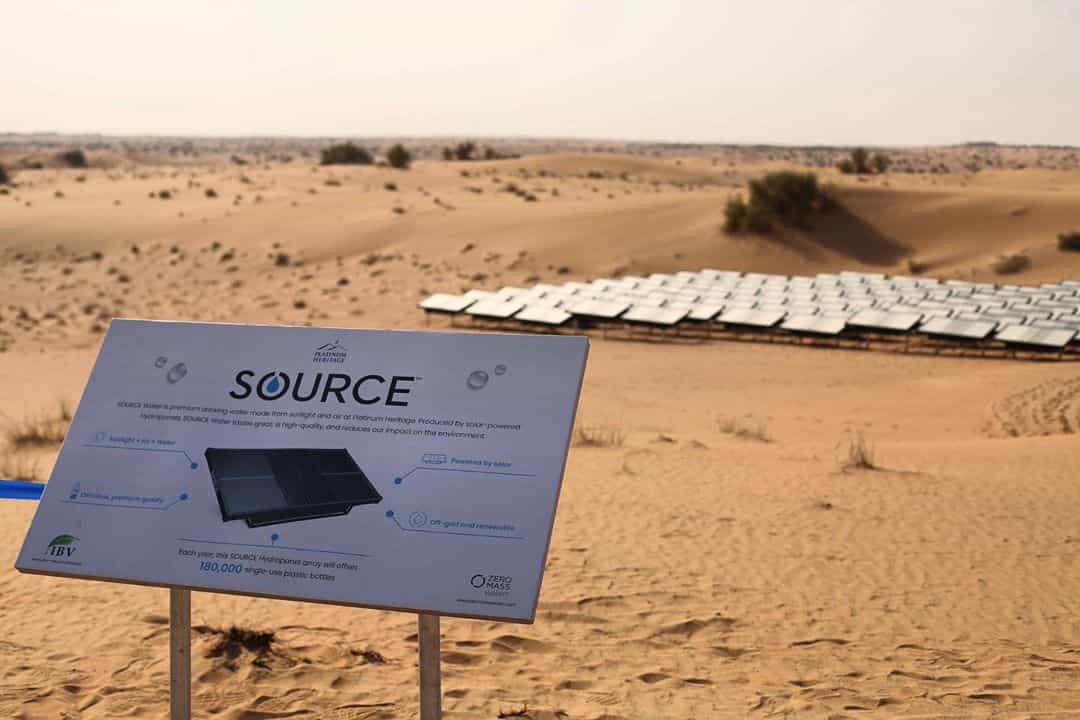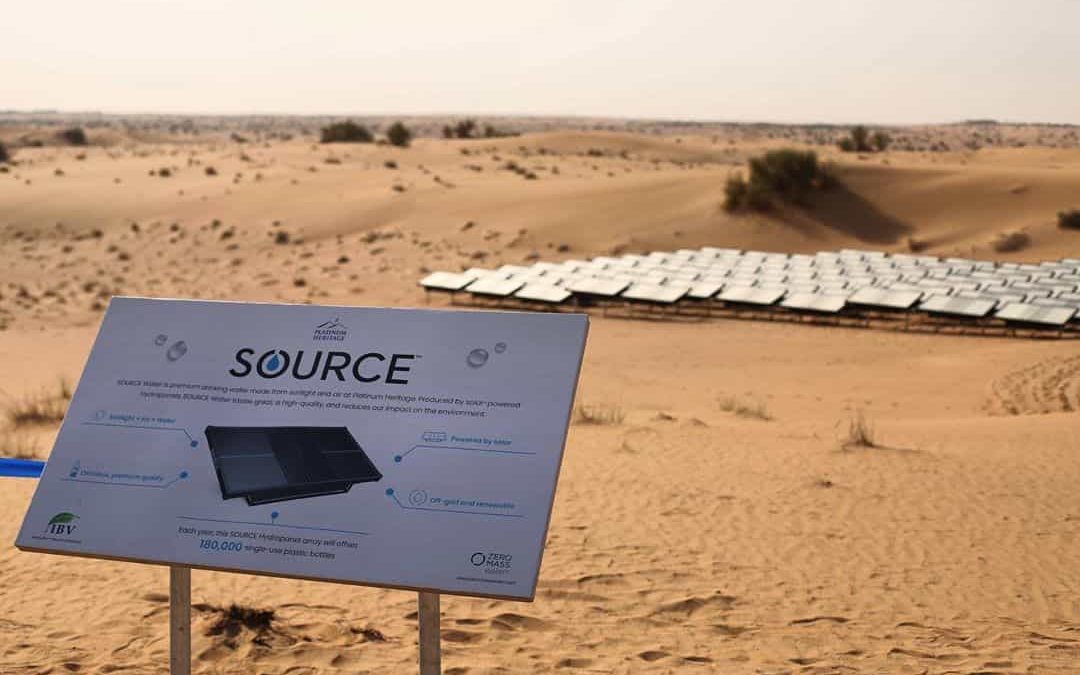
Imagine pulling vapor from the atmosphere and getting hygienic and fresh drinkable water. This might be just the help that households, like the Navajo homes, who have no clean water have been waiting for. Zero Mass Water’s Source hydropanels does exactly that – using renewable energy in the form of solar power to provide clean drinking water out of thin air.
The hydropanels are successfully being used in more than forty countries. An initial demonstration project is bringing this revolutionary air to water technology to 15 Navajo households through a grant provided by the Unreasonable Group and Barclays Bank. The best part is, the project is proving to be a hit! Mae Franklin, who is of the Cameron and Coalmine communities in Navajo, said in Positive News article on the subject:
“We are so happy to see these systems come to our communities who have not had basic access to water for all of these years.”
How does this technology work? The hydropanels are powered by off grid solar energy. The panels have fans that draw air from the atmosphere and push it through what’s called a hygroscopic (a water-absorbing material). Next, the trapped water vapor is condensed into liquid which is collected in the reservoir of the hydropanel. For the ideal taste and composition the water is mineralized. And that’s it.
Not only does the hydropanels provide drinkable water and are powered by renewable energy. Each of the panels connects to a cloud based network and is monitored for performance and quality so the project can strive to meet new heights.
“A standard, two-panel array, produces 4-10 liters of water each day, and has 60 liters of storage capacity,” said Cody Frisen, CEO of Zero Mass Water in an article published at Positive News. Also, each panel ”lasts for 15 years and utilizes solar power and a small battery to enable water production.”
The quality of the water exceeds the standards of every country where the systems have been deployed. So far different sized arrays meet the demands of households, schools, resorts, villages and whole communities.





